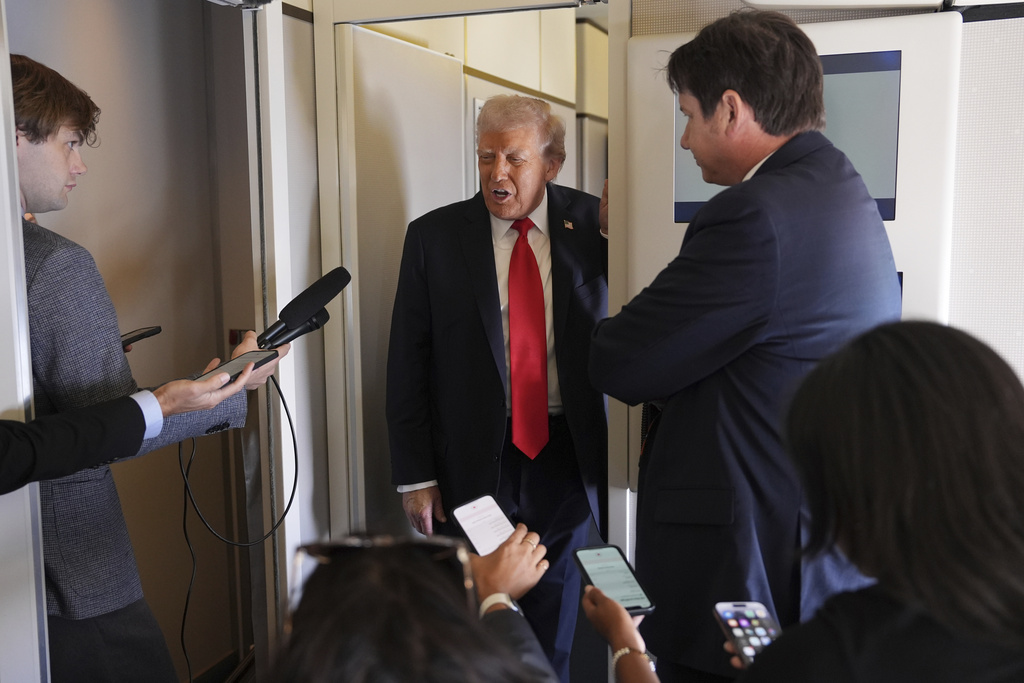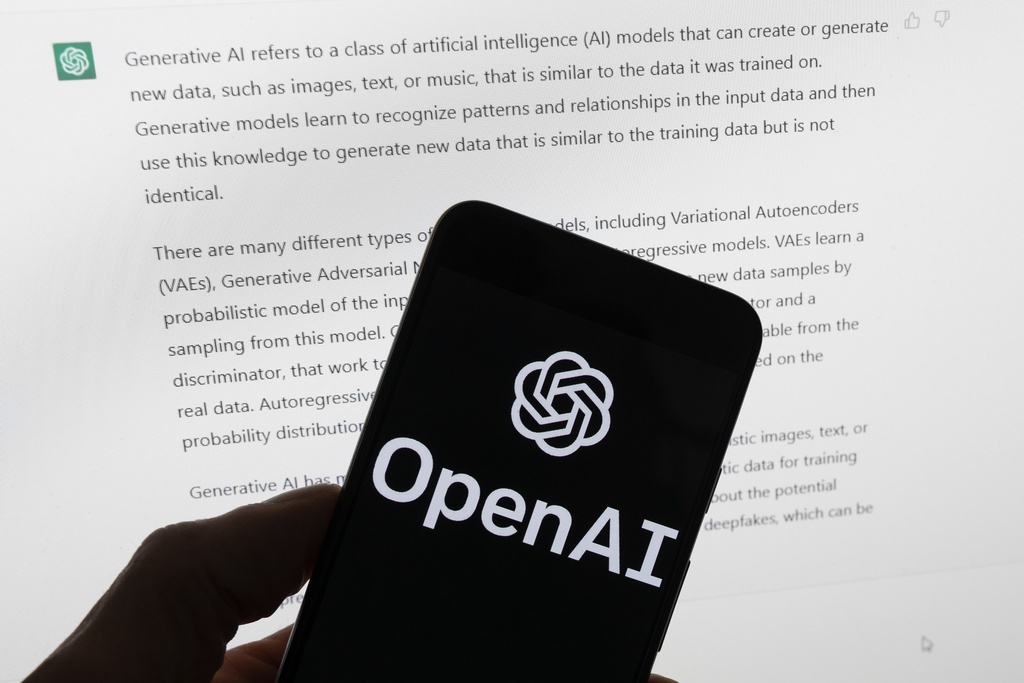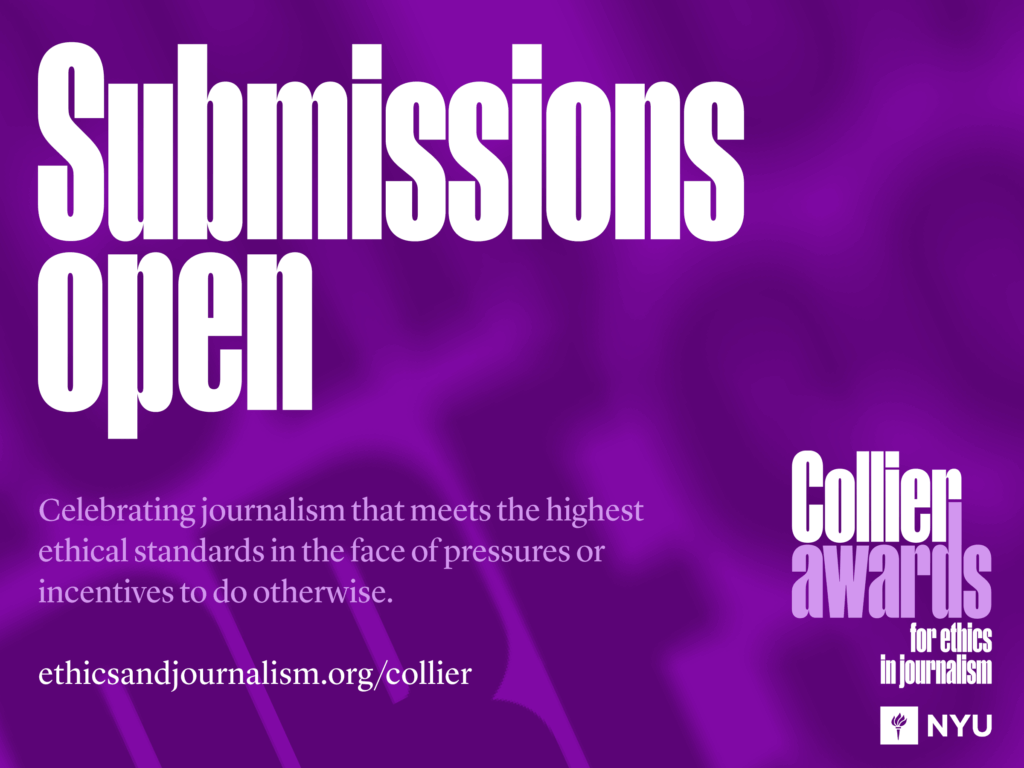September 18, 2025
Our Responsibility as Skeptics; Collier Awards Launch; Navigating Trump’s Anti-Journalism Disparagement; Beyond AI Sensationalism; Practical Tips for Working with PR Reps; Climate Event Oct. 23; Hacks and Departures

One winter day in New York City some years ago, a top media regulator for a powerful authoritarian country came to see me and my colleagues at the news organization I was then running. Such a face-to-face was rare, and I doubted that he was there to lavish praise on our coverage. As expected, he called on us to be “friendlier” and not to report unofficial information or contact sources who weren’t authorized to speak for the government. I said we were just trying to get the facts right so that our audience could get accurate information. His answer: Just come to me. I know the facts and would be happy to share them with you.
Readers of this newsletter will instantly recognize that his request and his offer were non-starters from an independent journalist’s perspective. Nonetheless, as we begin the academic year and the always-busy fall news season (not that the summer was slow), it’s worth reaffirming how central skepticism is to ethical reporting in the public interest.
Though skepticism of official statements may bring charges of bias or lack of patriotism, unfortunately, even now in the U.S., it is more important than ever to establish the facts independently, whether from documents or additional sources, before repeating any official line. Whether the spokesperson is from the local government, the Trump administration, a corporate PR office, or an advocacy group – and whether you support or oppose the statement personally – you have to doubt its veracity until you can report it out.
Reporting skeptically and fully before validating any tip, any rumor, any data dump, any purported trend – and especially any official pronouncement – is what journalists do and what separates us out from advocates, influencers, and pundits. It’s what makes us valuable, especially now.
We’re thrilled to be returning for a second cycle of celebrating exemplary journalism that is reported and published in the face of ethical challenges. Get a head start on your submission at ethicsandjournalism.org/collier (🔗).
A few updates from last year:
-
A New Website! Poke around our new site (🔗) to learn more about the Collier Awards’ history, catch up on submission guidelines, browse past awardees, and learn more about our spring awards ceremony and symposium.
-
A Bigger Prize! We’ve raised the cash prize for the local category to $15,000. First prize winners in the national/international category also receive $15,000, while student winners receive $5,000.
-
A New Judge! Adam Ganucheau, editor-in-chief of Mississippi Today, is the newest addition to the Collier panel of evaluators. Other judges include Dean Baquet of The New York Times, Sewell Chan of USC Center on Communication Leadership and Policy, Gina Chua of Semafor, Lynette Clemetson of Wallace House Center, documentary filmmaker Lynn Novick, Kerry Smith of ABC News, Stephen Solomon of First Amendment Watch at New York University, and Paul Steiger, founder emeritus of ProPublica.
-
New Issues to Explore! In our updated criteria, we invite you to explore the ethics of story selection and dive deeper into AI and technology use in your submitted work.
The deadline for submissions is December 8. Email (🔗) EJI Assistant Director and Collier Awards Manager Ryan Howzell with any questions.

President Donald Trump speaks with journalists on Air Force One en route to Stansted Airport near London, Tuesday, Sept. 16, 2025. (AP Photo/Evan Vucci)
In early August, The Guardian featured a nearly 2000-word dissection of President Donald Trump’s “frequently bizarre public appearances,” quoting three mental health experts who said Trump’s conduct raised questions about his cognitive acuity.
The Guardian asked the Trump administration to respond to queries about specific alleged gaffes and to its central thesis about the president’s cognitive decline.
The White House response began with an attack on the newspaper itself: “The Guardian,” said White House spokesperson Liz Huston, “is a left-wing mouthpiece that should be embarrassed to pass off deranged resistance leftists as ‘experts.’” Huston then added a substantive defense of the president: “President Trump’s mental sharpness is second to none and he is working around the clock to secure amazing deals for the American people.”
The Guardian quoted both parts of Huston’s statement – her attack on the newspaper and her defense of Trump’s cognitive abilities – in its story.
While the Trump White House is hardly the first to accuse media outlets of bad news judgment in throwaway lines at press conferences or private conversations, journalists are now seeing the inclusion of non-substantive criticism of news organizations in formal responses to substantive queries about the administration’s policies and actions.
We spoke with standards editors at a range of publications and we found a sharp divergence among them on the question of whether to publish extraneous insults from Trump spokespeople.
Read more about the approaches of NPR, Reuters, and other newsrooms here

FILE – The OpenAI logo is seen on a mobile phone in front of a computer screen displaying output from ChatGPT, March 21, 2023, in Boston. Digital news outlets The Intercept, Raw Story and AlterNet are joining the fight against unauthorized use of their journalism in artificial intelligence, filing a copyright-infringement lawsuit Wednesday, Feb. 28, 2024, against ChatGPT owner OpenAI. (AP Photo/Michael Dwyer, File)
Since the public launch of ChatGPT nearly three years ago, the media industry has cycled through many phases of AI adoption and experimentation. Andrew Deck has witnessed it all. As an AI staff reporter at Nieman Lab, Andrew is one of a small group of reporters specifically dedicated to tracking AI developments in journalism and media. For Andrew, reporting responsibly on AI means cutting through the “ambient anxiety” and speculation of most AI coverage and providing real-time updates on how AI is working, and not working, in newsrooms around the country.
We asked Andrew about what audiences actually want to know about AI use, AI “bias detectors,” how AI can help and hurt under-resourced newsrooms, and how he works to produce accountability coverage without undue alarmism.
Read the full conversation here
BEST PRACTICE
Public relations specialists vastly outnumber journalists in the United States. According to the most recent estimates from the U.S. Bureau of Labor Statistics, there were nearly 310,000 P.R. specialists in the U.S. in 2023 – and only 49,800 journalists.
Dealing with corporate and government spokespeople, in other words, is an inevitable part of the job for most reporters. For beat reporters, in particular, those relationships can be important. P.R. specialists are potentially valuable sources. They can also facilitate access to the executives and officials who run their companies and agencies. At the very least, a cordial relationship with corporate or government spokespeople means that queries are more likely to be taken seriously. But working with P.R. reps can also present ethical dilemmas for reporters. Reps, like any source, may try to influence story selection, not disclose information you need, or conflict with you on the terms of an interview.
Veteran legal journalist and Ethics and Journalism Initiative Senior Advisor Alison Frankel offers guidance on three major ethical challenges that might arise from working with corporate and government P.R. specialists. Business and politics reporters, this one’s for you!
UPCOMING EVENTS
October 23
New York City
Covering climate, from fires in Maui and Los Angeles to Texas floods to extreme heat across the country, is a diverse, sprawling, and ethically challenging beat. We’re hosting an expert panel of experienced climate reporters to dig into what’s working and what’s not in climate reporting today.
Panelists include:
Emily Atkin, author and founder of HEATED, a weekly newsletter dedicated to original accountability reporting and analysis on the climate crisis.
David Sassoon, founder and publisher of Inside Climate News.
Somini Sengupta, international climate reporter on the New York Times climate team.
The event will be moderated by Dan Fagin, director of the Science, Health, and Environmental Reporting Program.
iN THE news
In August, Ethics and Journalism Initiative Director Stephen Adler contributed to the discussion around two very different, but equally pressing, ethical decisions journalists are facing in today’s political climate:
-
What to do, as a reporter, if you receive a hacked or anonymously leaked scoop?
-
What to do if you deeply disagree with your newsroom’s approach and editorial judgment?
Read the two pieces here: First, Brian Lowry’s Should They Stay or Go? Veteran Journalists Face Tough Choices in the Trump Age for The Wrap. Then, Adler’s An Anonymous Leak Can Feel Like a Gift. Open with Care in Columbia Journalism Review’s Thirteen Journalists on How They Are Rethinking Ethics.
We Want to Hear From You
Have thoughts on something you’ve read here today or a journalism ethics topic in the news? We’d like to hear what you have to say and may feature your comments in a coming newsletter. You can drop us an email at ryan.howzell@nyu.edu or reach us on Linkedin, Bluesky, X, and Instagram.

